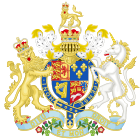- Disorderly Houses Act 1751
-
The Disorderly Houses Act 1751[1] 
Parliament of Great BritainLong title An Act for the better preventing Thefts and Roberries, and for regulating Places of publick Entertainment, and punishing Persons keeping disorderly Houses. Statute book chapter 25 Geo 2 c 36 Territorial extent Great Britain Dates Repeal date 21 July 2008[2] Other legislation Repealing legislation The Statute Law (Repeals) Act 2008, s.1(1) & Sch. 1, Pt. 3 Status: Repealed The Disorderly Houses Act 1751 (25 Geo 2 c 36)[3] is an Act of the Parliament of the Kingdom of Great Britain. It made provision in relation to disorderly houses.
Section 1 was repealed by the Statute Law Revision act 1867.
Sections 2 to 4 were repealed by the section 93(1) of, and Part II of Schedule 18 to, the London Government Act 1963.
Sections 5 to 7 were repealed by section 34(1) of, and Schedule 2 to, the Administration of Justice Act 1965.
Section 8
Immediately before its repeal this section read:
“ And whereas, by reason of the many subtle and crafty contrivances of persons keeping bawdy-houses, . . . , or other disorderly houses, it is difficult to prove who is the real owner or keeper thereof, by which means many notorious offenders have escaped punishment any person who shall at any time hereafter appear, act, or behave him or herself as master or mistress, or as the person having the care, government, or management of any bawdy-house, . . . , or other disorderly house, shall be deemed and taken to be the keeper thereof, and shall be liable to be prosecuted and punished as such, notwithstanding he or she shall not in fact be the real owner or keeper thereof.[4] ” The words omitted were repealed by section 15 of, and Part I of Schedule 6 to, the Betting and Gaming Act 1960.
From 2003 until its repeal, this Act did not apply in relation to relevant premises within the meaning of section 159 of the Licensing Act 2003.[5]
Offences under this section were triable either way by virtue of the Magistrates' Courts Act 1980, section 17 and Schedule 1, paragraph 2.
Section 9 was repealed by the Statute Law Revision Act 1867.
Section 10 was repealed by section 56(4) of, and Part IV of Schedule 11 to, the Courts Act 1971.
Sections 11 and 12 were repealed by the Statute Law Revision Act 1867.
Sections 13 and 14 were repealed by the Statute Law Revision Act 1966.
Section 15 was repealed by the Statute Law Revision Act 1867.
References
- ^ The citation of this Act by this short title was authorised by the Short Titles Act 1896
- ^ The repealing Act came into force on the day that it received royal assent because no other date wasspecified: the Interpretation Act 1978, section 4
- ^ Disorderly Houses Act 1751
- ^ http://www.legislation.gov.uk/apgb/Geo2/25/36/section/8
- ^ The Licensing Act 2003, section 198(1) and Schedule 6, paragraph 2
External links
- The Disorderly Houses Act 1751, as amended from the National Archives.
United Kingdom legislation Pre-Parliamentary legislation Acts of Parliament by states preceding
the Kingdom of Great BritainActs of the Parliament of England to 1483 · 1485–1601 · 1603–1641 · Interregnum (1642–1660) · 1660–1699 · 1700–1706
Acts of the Parliament of Scotland
Acts of the Parliament of Ireland to 1700 · 1701–1800Acts of Parliament of the
Kingdom of Great Britain1707–1719 · 1720–1739 · 1740–1759 · 1760–1779 · 1780–1800
Acts of Parliament of the United Kingdom of
Great Britain and Ireland and the United
Kingdom of Great Britain and Northern IrelandChurch of England Measures Legislation of devolved institutions Acts of the Scottish Parliament
Acts and Measures of the Welsh Assembly
Acts of the Northern Ireland Assembly / of the Northern Ireland Parliament
Orders in Council for Northern IrelandSecondary legislation Categories:- Statute stubs
- United Kingdom law stubs
- Great Britain Acts of Parliament 1751
Wikimedia Foundation. 2010.

